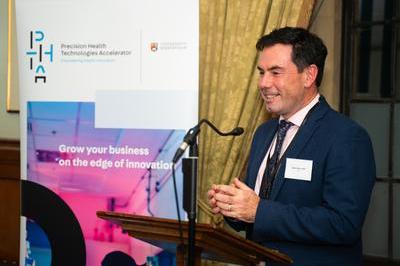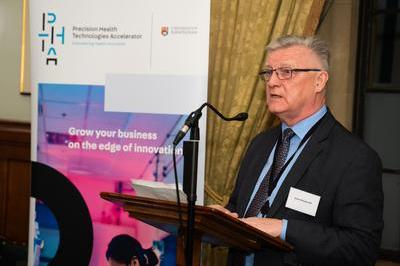CEO Update - 30 October 2023
Pensions campaign momentum
Our campaign to get more of the pensions investment into UK life science firms received a boost last week as twenty of the leading Venture Capital (VC) and Growth Equity firms signed the Venture Capital Investment Compact pledging to support efforts to unlock British pension investment in high-growth companies. Convened by the British Private Equity and Venture Capital Association (BVCA), the Compact commits signatories to working closely with the pension funds which were enlisted in the Government’s Mansion House agreement. The Chancellor of the Exchequer, Jeremy Hunt MP, described the deal as “a huge win – demonstrating that our world-renowned VC firms stand ready to help our pension providers allocate funding to our high-growth companies. This could boost British pension pots to the tune of £1,000.” The new Pensions & Private Capital Expert Panel will include BIA Chair Dan Mahony.
In further positive news, a leading international life sciences investment group Abingworth announced it has raised $356 million for a new Clinical Co-Development Co-Investment Fund. This enables it to extend its capital base for late-stage clinical programs with pharma and biotech partners.
West Midlands out in force in Westminster
AI Summit this week
I am following closely the discussion around the global Artificial Intelligence (AI) Summit scheduled this week in Bletchley Park. Many of the preparatory documents give good insight into government thinking about the possibilities and threats associated with this technology, and given that it is at the heart of many techbio approaches and applications, it is vital for us to provide our sector’s view.
I am glad to see that the recent assessment takes into consideration the implications of industrial strategy questions and encourages policymakers to think through the implications of company size and the role of smaller players like “there may be significant concentration of market power in AI. Researchers and regulators have begun to explore the likelihood of high concentration of market power among frontier AI developers.”
The paper notes that “the high upfront costs associated with training frontier AI models appear to create economies of scale and significant barriers to entry for smaller players.” The paper also states that “a considerable concentration of market power could weaken competition, reducing innovation and consumer choice. A loss of consumer choice also means users have less say in the use of their data, potential behavioural manipulation, surveillance and an erosion of democratic norms.” If governments think through the implications of this it may impact how health data is used and shared with companies.
Women in Biotech at Oxford
We have a great lineup for our Women in Biotech networking event in Oxford’s Natural History Museum this Wednesday. Come along to be inspired by our fantastic speakers and grow your network at our biggest-ever Women in Biotech event









